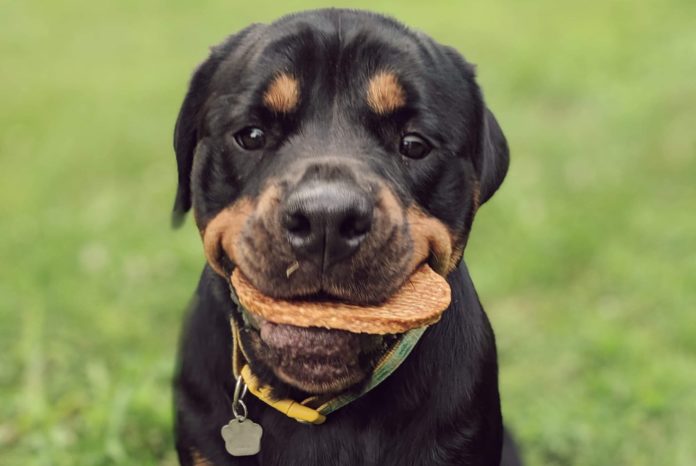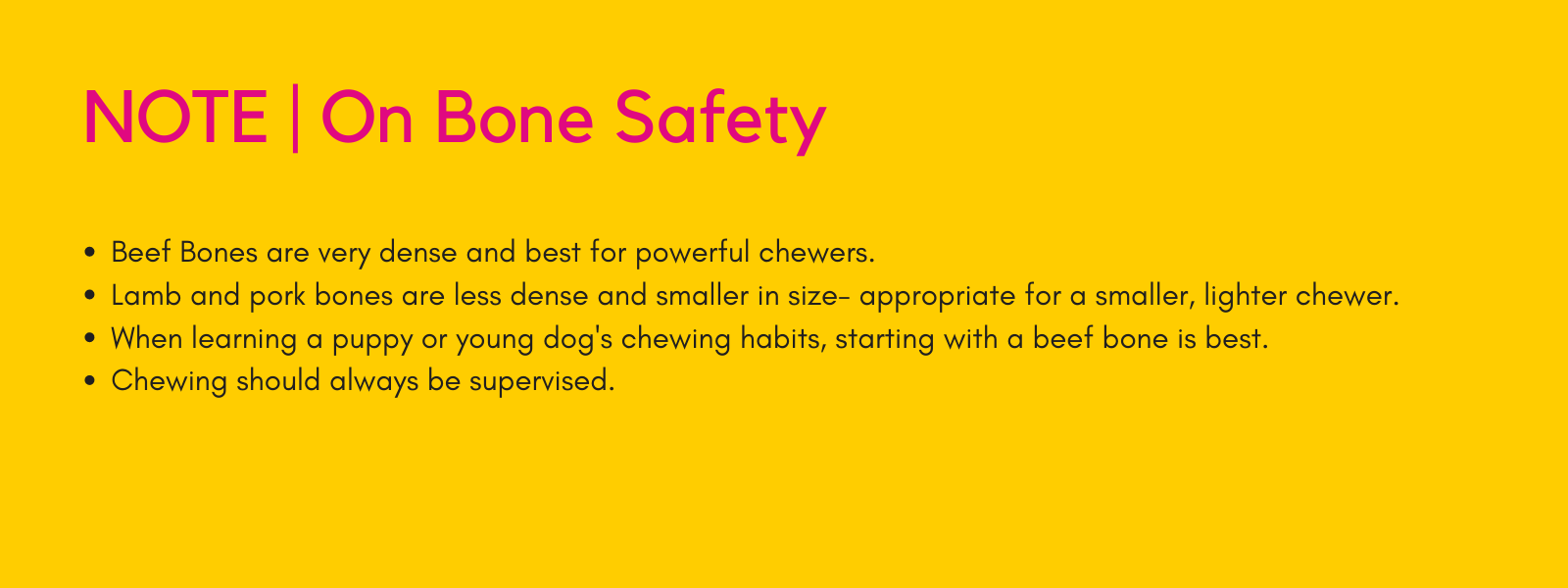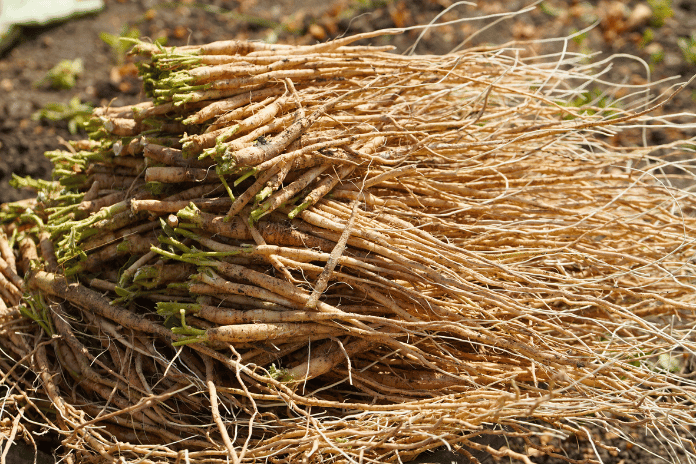Choosing chews for your dog

With all the options available, how is a pet parent supposed to choose between all the chews? Here are a few factors to consider when selecting a safe product for your dog.
You’re trying to purchase a natural chew (pig ear, bone, etc.) for your dog – and you’re overwhelmed by the possibilities. We get it! There are so many options, and it can feel pointless, because let’s face it, dogs don’t necessarily have the most discerning palate.
Here are a few factors that will help you narrow it down.
- Age
- Size
- Chewing habits
- Dietary needs
Age
If your dog is young and teething, you will want to find items that help through the process. Teething can be painful for a pup and chewing will provide relief as they grow. It is also important to note that a young dog’s chewing habits are just beginning to develop. Chewing should be supervised at any age, but especially as a dog is learning. Make sure that your pup takes break so that you can inspect chews for any unsafe breakage. This will also help a pup understand that it is okay to walk away from chewing and resume later.
As dogs age, they may prefer softer chews. Jerky, patties or other sausage-style treats are less firm than bones and may be a good fit.
Size
Size is an important safety factor, especially when choosing a bone or chew. A bone should be large enough that it cannot be swallowed whole, but rather gnawed down over time. Chews should also be larger than a dog’s mouth so they cannot gulp the item. Natural chews and bones are available in a variety of sizes. While you are working on finding the right size for your pup, it is probably best to purchase in a store, so you can see the item prior to purchasing. Shopping in-person with your dog will also help you determine what size chew or bone is most appropriate – plus it’s fun!
Chewing habits
Understanding how your dog chews is an important part of selecting a safe and appropriate chew for your pup. While size definitely impacts a dog’s strength, small dogs can be powerful chewers, too. Dogs with strong jaws that chew powerfully need a dense chew or beef bone. Dogs that chew so powerfully that they can take hunks out of a bone should not have bones. A bully stick is a firm treat that’s more appropriate for these types of aggressive chewers.

Dietary needs
Natural chews are an effective way to help meet your dog’s dietary needs as well. Beef trachea contains naturally occurring glucosamine, which is beneficial for joint health, a concern for many older dogs. Treats containing organ parts may provide other valuable nutrients. The grease that occurs naturally on body part chews improves skin and coat health. Any chewing action is good for removing plaque from dog’s teeth.
Other factors to consider
It’s important to note that not all treats and chews are manufactured with the same safety and quality guarantees. When selecting an item for your pet, consider the country of origin of the product and their manufacturing standards as well as any additives that may be included.
Another important thing to remember is that providing a variety of different chews can keep your dog mentally engaged in the act of chewing. This is important because it prevents boredom and any negative behaviors that can develop as a result. So don’t be afraid to mix it up for your dog! Different options also offer different benefits. Mixing in a variety keeps dogs excited about what is coming next while also providing the various nutritional benefits.
Regardless of what chew you select, always supervise your dog’s chewing sessions. Over time, you’ll learn their preferences and will be able to decide which options are best for your best friend!




